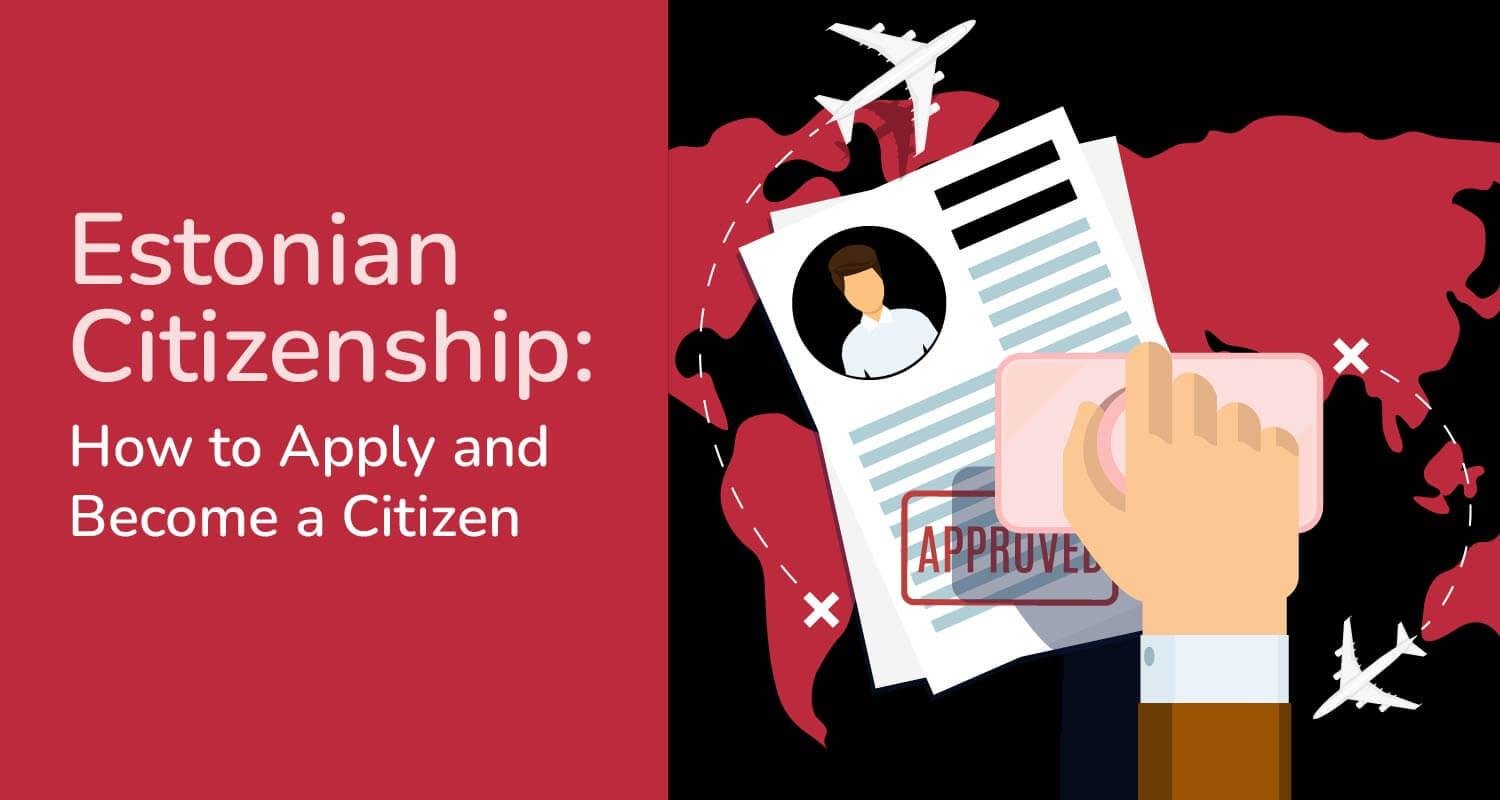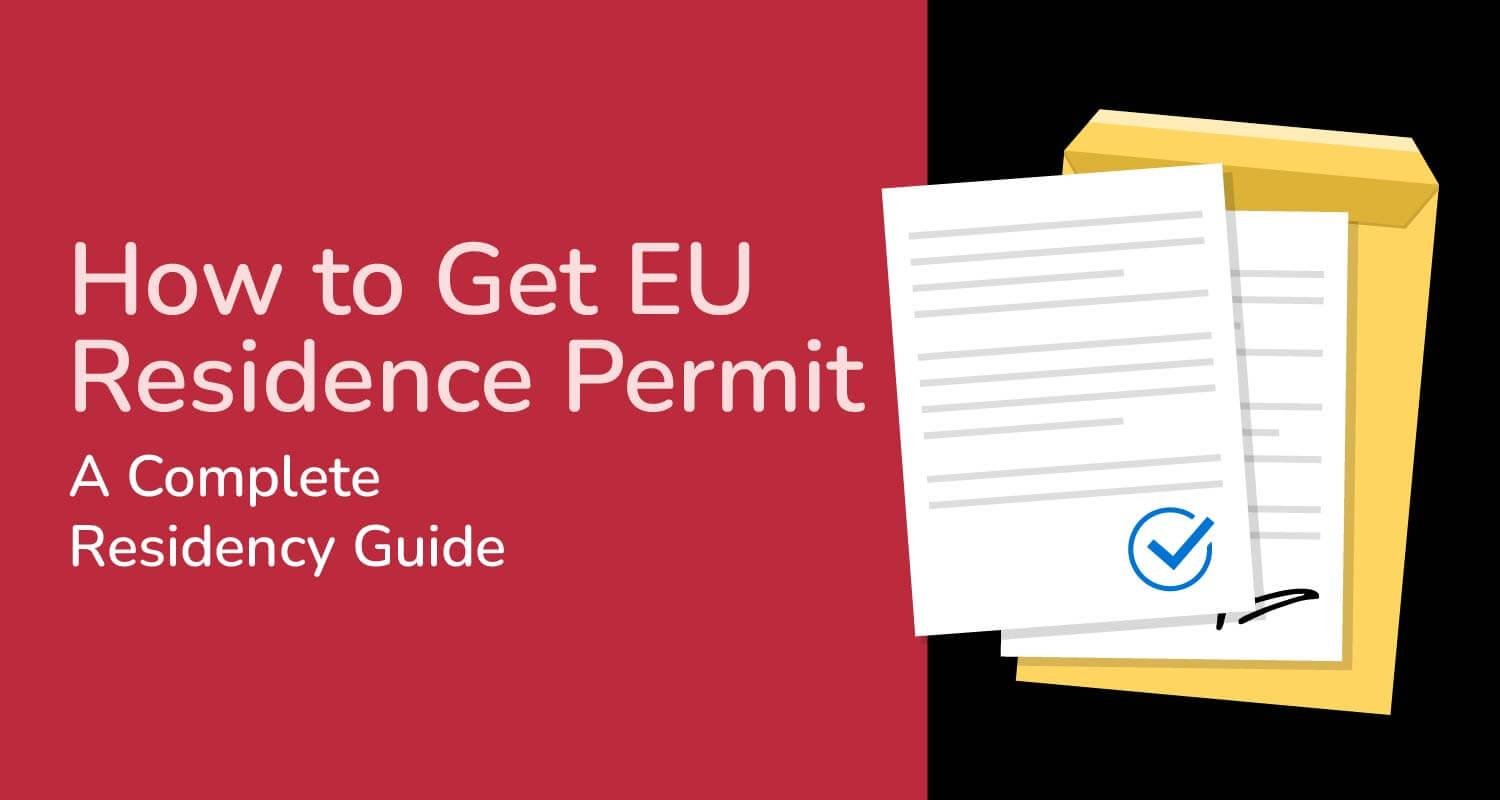
How to Get EU Residence Permit: A Complete Residency Guide
Non-Europeans are now looking to avail themselves of the travel and business opportunities that European countries offer — even if they can't get their hands on an EU passport or EU citizenship.
Let's look at the benefits and requirements needed to get a residence permit in European countries.
We'll look at how you can fast-track your permanent residence and even citizenship through efforts like the Golden Visa program and how you can make the most out of your contributions to EU countries!
What Is an EU Residence Permit?
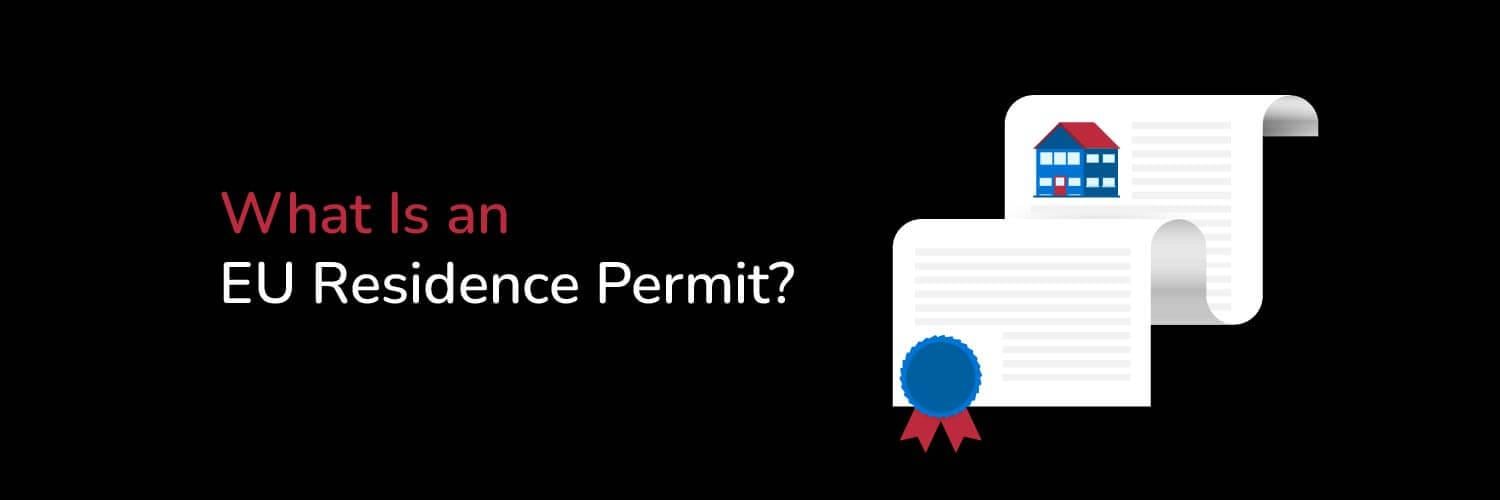
An EU residence permit is a residence title that allows you to live, reside and work in one of the 27 countries in the EU WITHOUT needing an EU passport in any of them.
While you will need a residence permit to stay in an EU country for longer than 3 months, you can avail of a permanent residency permit by staying for at least five years or participating in an investment program.
Choosing to achieve resident status through an investment program will get you what is called a Golden Visa.
- This program entails buying real estate, paying off the national debt, or investing in local companies.
- Many countries like Spain, Portugal, and Malta offer these Golden Visas to incentivize entrepreneurs and ex-pats to invest in their chosen country and buy property there.
The reward for this investment is a speedy path to permanent resident Visas and a smoother EU citizenship application process!
Permanent Residence vs. Citizenship in the European Union
European citizenship entails having a passport in any of the European countries, allowing you to reside and travel anywhere in the EU and access healthcare in another country.
The difference between a residence permit and EU citizenship is that you can pay for residence in countries with the Golden Visa program or live in EU countries for 5 years to become a permanent resident.
However, you can acquire citizenship by:
- Being born in Europe
- Having European family members
- Being a permanent resident for at least 10 years
- Investing much larger amounts of money
Citizenship is thus more powerful, granting citizens more rights, including voting and political office.
However, long-time European residence still comes very close regarding rights and privileges.
Who Is Eligible for an EU Residence Permit?
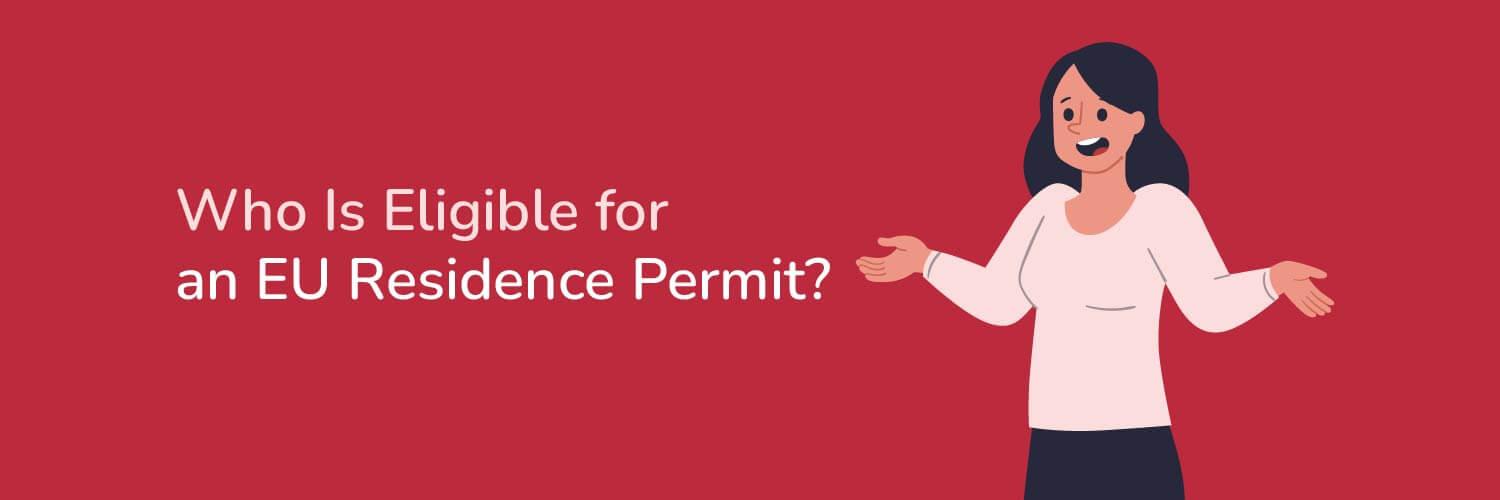
A permanent residence permit is a challenging task to obtain.
However, it's much easier to secure than EU citizenship, and it's a great way for foreign nationals to live in their EU country of choice.
Here are some people who can benefit most from a Golden Visa and long-time residence in Europe:
1) Investors, Businessmen, and Entrepreneurs
What if we told you that by contributing to the economic prosperity of countries in the European Union, you could essentially PAY for a permanent residence permit in that country?
Residence by investment is the main goal of the Golden Visa program. It's a means of generating income and boosting economies in exchange for residency.
Eleven (11) countries offer Golden Visas for investments of around €500,000!
As long as the money is yours to invest, you can secure residence and even citizenship WITHOUT living in these countries full-time.
For example, Portugal requires the cheapest investment at €250,000, while Malta can make you a citizen after only a year of residency.
2) Emerging-World Citizens
Non-EU citizens in Asia, Africa, and South America can benefit greatly from European residency because it serves as a stepping stone to better opportunities.
It gives them a chance to WORK and STUDY anywhere in Europe!
Buying property also allows them to have similar rights to citizens without fighting tooth and nail for a passport.
3) US Citizens
The US provides a very powerful visa. However, gaining a second residence in Europe will allow you to gain an equally, if not more powerful, one.
This is perfect for Americans who enjoy traveling (especially to European countries) or want to move to a stable, secure, prosperous place.
Who Isn't Eligible?
While we would always hope for a positive decision, your chosen country may decide AGAINST giving you your residence license for the following reasons:
- You are a threat to public policy and European security.
- You are a fraud.
- You have been absent in the country where you reside for more than 12 consecutive months during the last five years.
- The number of residents and third-country nationals without European citizenship is reaching the cap set by that specific country.
Any applications for naturalization and citizenship can be denied under the same conditions.
What Are the Benefits of an EU Residence Permit?

Residence in the EU is quite powerful, especially when compared to being a permanent resident of other countries and entities.
Here are what your temporary residence permit and permanent status can get you in the EU:
#1 Same Rights
Residents and citizens have almost the same rights, so much so that you can enjoy the benefits of EU countries and even equal treatment in the eyes of the law without needing citizenship.
The only difference between a resident and a citizen is that a citizen can VOTE and RUN for office.
Aside from that, you're no different from a European in the eyes of the EU legal and social system.
Long-term resident permits are also automatically renewable every 10 years, ensuring you can enjoy social security and health insurance while only paying what nationals pay.
#2 Ability to Work
While the application process to work and live in the EU may be stringent, the opportunities for education, vocational training, work, and career progression make it all worth it!
#3 Visa-Free Access to Many European Countries
Despite not being an EU citizen, your residence permit grants you easier access to countries in the EU without needing to apply for a country-specific Visa.
You can move FREELY across Europe as if you were a citizen!
How to Get EU Residency

Here are some of the residency requirements that will allow you to apply for a permanent residence permit in the EU:
- You have lived in your chosen EU country for a period of five (5) years
- You have bank statements to prove that you can provide for yourself and any dependents
- You have sufficient command of the local language
- You have a satisfactory basic knowledge of the way of life in your chosen country
- You do NOT need to rely on the State to meet basic needs
If you meet these residency requirements, you can send out your application, provide biometrics, pay the fees, and wait for your application to be processed.
Alternatively, you can apply for a Greece, Portugal, Switzerland, or Spain Golden Visa by availing of investment options such as capital transfer or paying the minimum amount.
This will grant you a temporary residence permit and corresponding identity cards while speeding up your ability to become a permanent resident or even a citizen in countries where this is offered.
How Long Does It Take to Get EU Residency?
If you go through the normal process and pay all your dues, it takes at least five years to become a permanent resident in an EU country.
However, things are different with Golden Visa Programs.
If you're a businessman looking to spend more time in the EU without living in your chosen country, you can gain residence permits through a Golden Visa.
These allow you to gain EU residency without needing to reside in your European property.
Malta and Portugal even grant citizenships in a fraction of the time it takes you to become a resident in other nations.
What Is the Easiest Way to Get EU Citizenship?
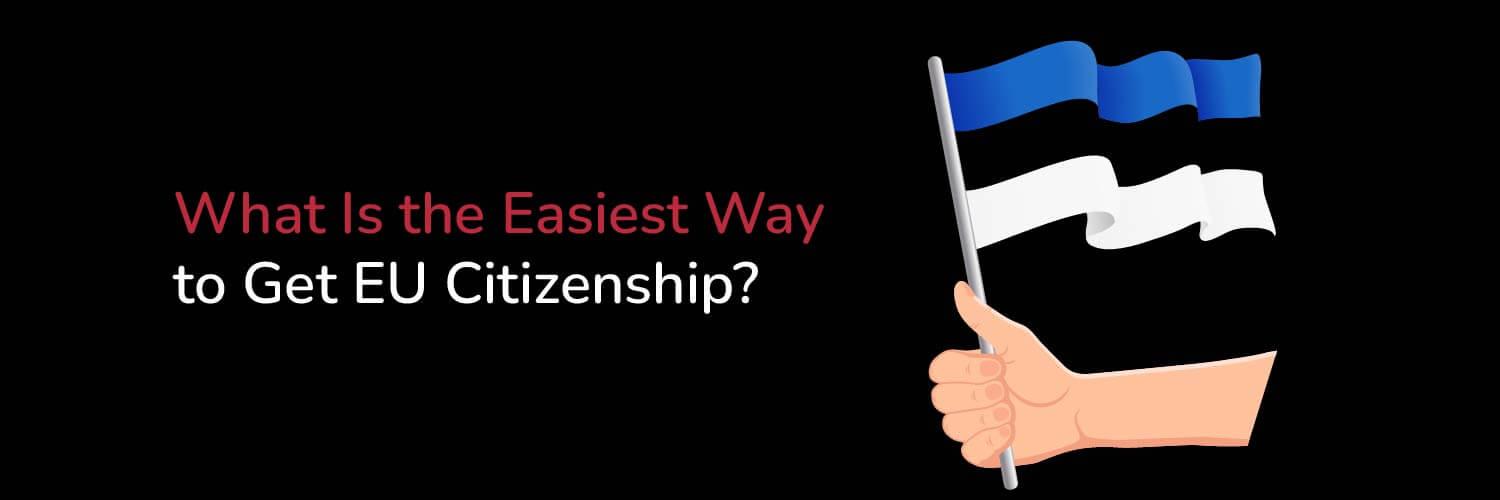
The EASIEST way to become an EU citizen is to be born in the EU or be born to European citizens.
Barring that, you can marry European citizens or prove you are descended from a European family member.
If your grandparents or great-grandparents were from EU territories, it's a great way to gain a second passport.
Suppose you're not related to anyone European or are not from a former European colony.
In that case, you'll have to get naturalized by waiting 5-10 years to apply for citizenship or gain citizenship by investment (Golden Passport).
The rights of a European Citizen still outweigh those of residents.
As such, citizenship is very tempting for those looking to gain a powerful valid passport, a second passport, or those with European family members.
Which Is the Easiest EU Country to Get Residency?
If you're willing to invest but lack the cash to go all-out, Portugal is the easiest and cheapest country to gain residency through investment.
If being a resident isn't enough and you'd want a second passport, investing in Malta can get you Malta citizenship and a Maltese passport after only ONE year of residency!
Plenty of nations in the EU provide exceptionally-low eligibility criteria, allowing people to reap the rewards of residency and equal treatment without even needing to live full-time in their resident country.
You can gain the same benefits as an EU citizen by investing in Europe. Portugal, Greece, Spain, Gibraltar, and Ukraine are some of the best Golden Visa nations to invest in.
Frequently Asked Questions

Requirements for residency in Europe can get confusing because of how different EU countries grant residence permits.
Let's address some of the most pertinent questions for those wishing to gain a residence permit and a longer-lasting visa in the EU:
Is a Residence Permit the Same as Schengen Visa?
While a Schengen Visa and a residence permit allow you to stay for "long" periods in Europe, they vary in terms of the DURATION of your stay and HOW MANY countries you can visit.
A Schengen Visa grants holders the ability to stay as a tourist in any or all of the 26 Schengen States for less than 90 days in a 180-day period.
It's essentially a short-stay and airport transit visa.
In contrast, a residence permit allows you to stay in one EU country for more than 3 months. If your stay lasts more than five years, you can become a permanent resident.
A Schengen Visa is thus a very powerful tourist visa for those looking to travel through or visit Schengen areas.
On the other hand, a residence permit allows you to live in one European country at a time.
Can You Buy a House in Europe Without Citizenship?
EU residency programs are designed for those hoping to obtain permanent residence in a given EU country quickly by allowing them to buy property or contribute to the local economy.
As such, buying real estate allows you to earn a Golden Visa, which grants you residence in the country you choose to build in without you needing to live there full time.
Countries participating in the Golden Visa Program incentivize you and other non-EU citizens to buy a house in exchange for permanent residence.
These investment programs are meant to encourage foreign nationals with money to spend to buy houses in Europe to speed up their residency applications and even secure citizenship.
How Long Can You Stay in Europe Without Citizenship?
It is possible to stay in countries in the EU without citizenship for 90 days (within a 180-day period) as a tourist.
You can also avail of a temporary residence permit as a student, which lasts for the duration of your education.
Investing in property gets you a Golden Visa, a quicker way to secure long-term residence in Europe than staying in an EU country for at least five years.
Countries like Spain and Estonia make it quick and easy to become permanent residents as long as you buy property.
You'll only need to renew your residency once every decade.
Can I Have Residency in Two EU Countries?
Generally speaking, you CANNOT possess a residence permit in two countries at once, especially if you're a non-EU citizen.
The whole point of the investment options listed is to allow you to invest in Europe in exchange for benefits.
Thus, it's fairly easy to transfer your residency to a different EU country from your current one.
If you possess a PERMANENT residence permit in countries like France, you can live in other EU countries without needing to apply for a Visa.
As long as you meet the conditions and apply for a residence permit within three months of your arrival, you should have no problem transferring your residence to another European country.
When in doubt, you can verify residency information with the government of the country you're planning on residing.
Conclusion

Non-EU citizens can obtain an EU residence permit or a Golden Visa by contributing to investment programs or working and doing business in the EU country they wish to live in.
Obtaining a residence permit can speed up European citizenship applications and allow you and your closest family members to secure an EU passport.
Overall, the best way to secure a residence permit, and even European citizenship, is to contribute to your EU country of choice by:
- Joining investment schemes
- Buying government bonds
- Being an upstanding member of society


